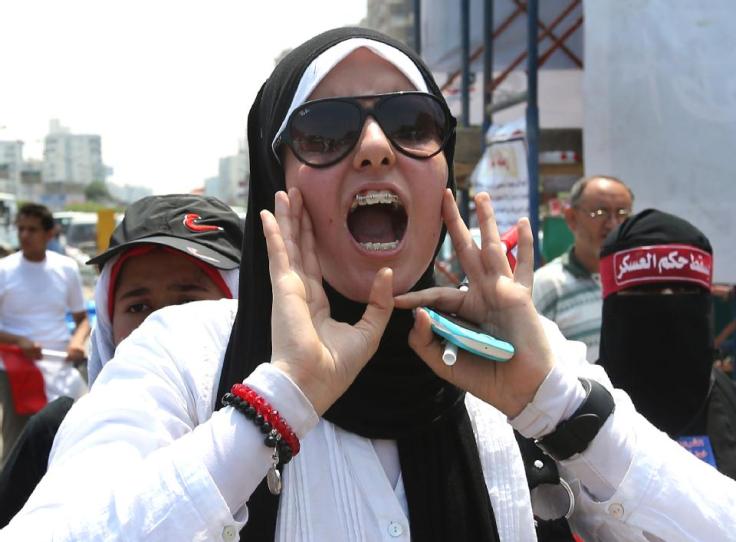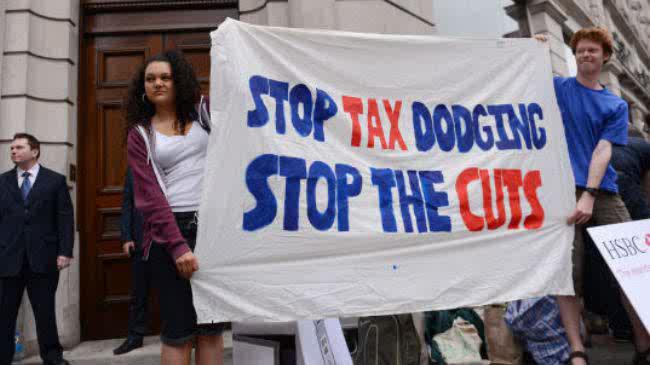
In the aftermath of former Egyptian President Morsi’s expulsion, a mix of dazzling fireworks and frenzied flag waving soon gave way to warring clusters in Tahrir Square. The death toll has been dutifully accounted for – albeit, in varying numbers – by media outlets, government officials and opposing groups as clashes between pro- and anti-Morsi protesters continue.
What has gone largely unreported are the horrifying accounts of sexual assault occurring amid the daily demonstrations, activist groups say. At least 91 women have been sexually assaulted and in some cases raped by mobs in Tahrir Square as of July 3, according to Human Rights Watch.
Zeinab Sabat, a member of the anti-sexual harassment organization Tahrir Bodyguard, voiced this glaring disregard in an interview with PBS.
“We’re doing the job of the police,” said Sabat. “We’re doing the job of people who are in power who should be responsible for this.”
These attacks were magnified on a global scale after five men, self-proclaimed “revolutionaries,” raped a 22-year-old Dutch journalist on June 28. This incident echoed the horrifying rape of CBS correspondent Lara Logan, who was severely beaten and raped by a mob of more than 200 men in 2011.
“I saw victims and I…it’s traumatizing,” Sabat said about patrolling Tahrir Square. “And I see them, and I feel that it’s not…you cannot trust a man anymore.”
Tahrir Bodyguard and fellow anti-harassment organizations like I Saw Harassment, Fouada Watch and Operation Anti-Sexual Harassment (OpAntiSH) have been assisting victims, providing ground intervention, and chronicling sexual harassment. Still, the overwhelming number of bodies in Tahrir Square and surrounding areas has made doing so a formidable task.
Hardly as clear cut as the factions fighting in Tahrir Square, the issue of sexual assault has spread across all involved parties. The military, police officers, protesters and medical officials have all been accused of violating women protesters. Some attackers even disguised themselves as rescuers, according to assault victims, removing the women from violent situations only to molest them once more.
The seriousness of the attacks ranged from mob sexual harassment and assault to raping female protesters using knives and sharp objects, read a report by OpAntiSH.
Recent statements denouncing these mob attacks have been made by the Egyptian presidency and the Muslim Brotherhood. Yet, the report also blasted these parties for trying to exploit these occurrences for political gain against their opposition, noting that sexual harassment is nothing new in Egypt.
“It’s worth mentioning that reports of sexual harassment and assaults have not only been marginalized and not taken seriously by the government, but those who try to submit a report against sexual violence often endure insults and mockery, and in some cases even harassment.
“The current regime also continues in the tradition of the Mubarak regime and the Supreme Council of Armed Forces (SCAF) to use sexual violence as a means to torture and terrify men and women in prisons and police stations.”
A U.N. report released in April confirmed this claim, showing that 99.3 percent of Egyptian women interviewed said they had been subjected to some form of sexual violence. A lack of laws preventing sexual harassment against women and a number of social stigmas have fueled that popular belief that victims of assault are to blame.
Those attacked are left with little to no options.
Investigative journalist and author Nina Burleigh called on foreign spectators, namely “American progressives” to step forward and help combat the on-going sexual assault in Egypt.
“As the Egyptian revolution enters another chapter, and more women get stripped and sexually assaulted in the streets while being systematically excluded from the halls of power in Cairo, it is high time for American progressives and other Arab Spring commentators to stop separating anti-female violence from the politics of the Muslim Brotherhood’s revolutionaries,” wrote Burleigh.
“In the broadest sense, the West’s response to the treatment of women in post-Arab Spring countries, from Egypt to Syria, says a lot about the status of women here.



